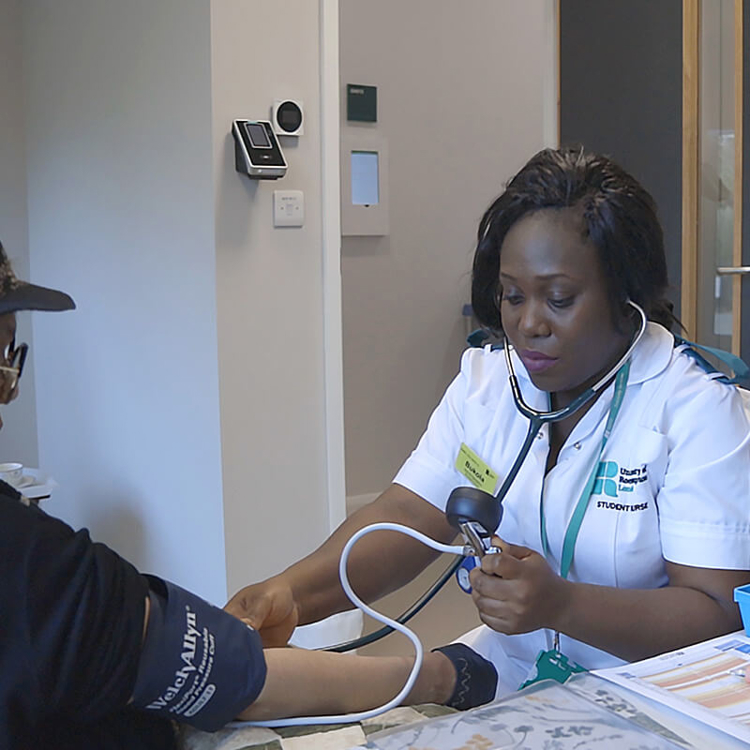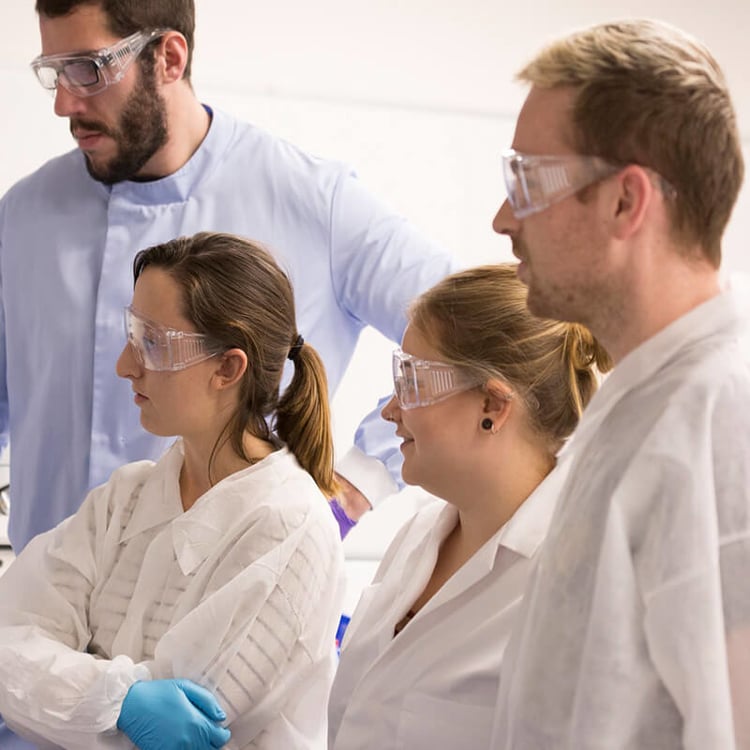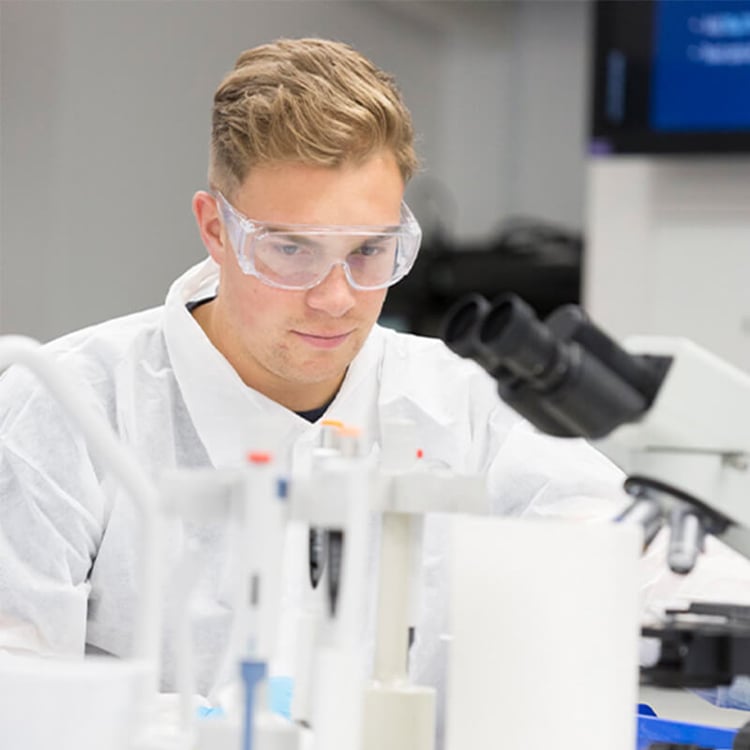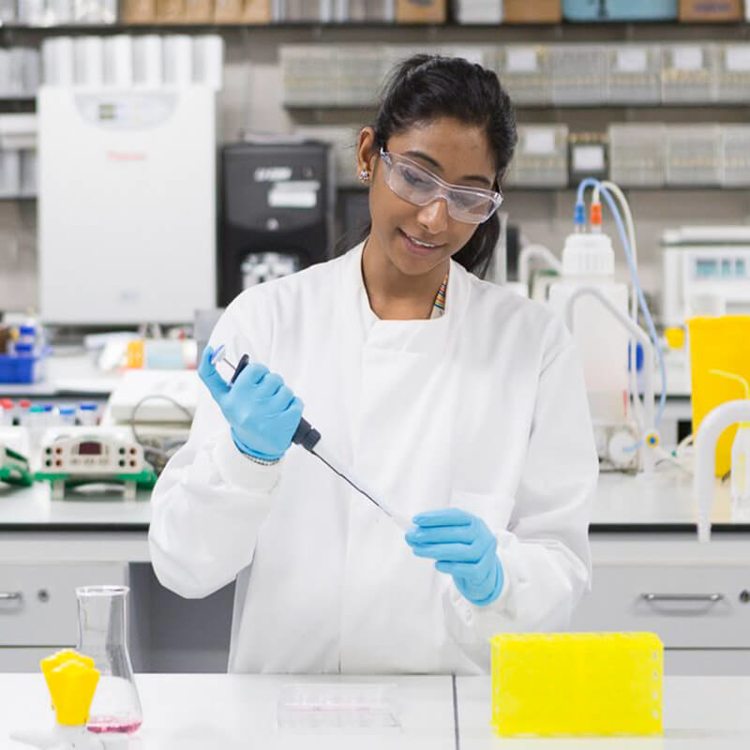Entry tariff:
120–136 UCAS points (or equivalent)
UCAS code:
B160
Start date(s):
September 2026
Learn how to help people live healthier, more active lives by understanding movement, recovery and rehabilitation, while gaining the skills and experience you need to make a real difference.
In a fast-evolving healthcare landscape, this programme equips you with the professional and interpersonal skills needed to thrive across a range of settings. You will explore how Physiotherapy supports individuals to manage pain, restore function and achieve their personal goals.
You’ll gain a strong foundation in applying scientific knowledge and therapeutic techniques to real-world challenges such as:
- Long-term health conditions and rehabilitation
- Health promotion and physical activity
- Supporting ageing populations
- Preventing injury and improving performance
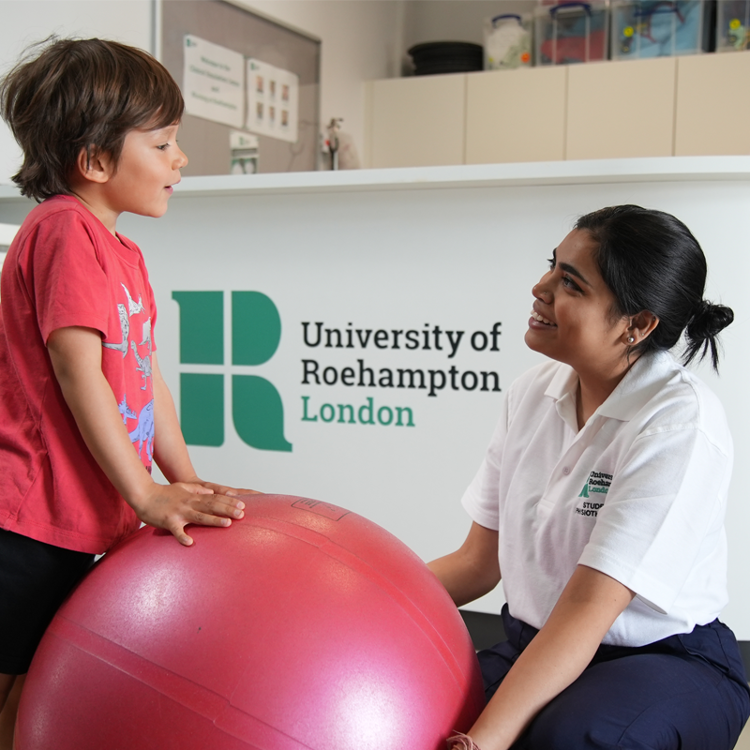
Did you know?
On this course, you’ll use innovative digital tools and technologies to enhance your learning, including simulation-based practice and digital health applications that reflect real healthcare environments.
You will also strengthen key professional abilities, including clear communication, leadership, and informed decision making.
This is grounded in an interprofessional ethos that equips you to work confidently and effectively within multidisciplinary teams. As your confidence grows, you’ll refine your ability to assess, analyse and treat a wide range of conditions, to provide person-centred care
Throughout the programme, you’ll build a versatile skill set and gain practical experience that mirrors real world scenarios. This will help you prepare for a dynamic and meaningful career where you can make a tangible impact on people’s lives.
Our BSc Physiotherapy (Pre-Registration) programme is proudly accredited by both the Chartered Society of Physiotherapy (CSP) and the Health and Care Professions Council (HCPC).
Chartered Society of Physiotherapy (CSP)
Accreditation by the Chartered Society of Physiotherapy demonstrates that our degree upholds the CSP’s rigorous professional standards.
It ensures you gain the practical knowledge, clinical experience and professional values sought by employers, giving you a strong advantage as you begin your career.
Health and Care Professions Council (HCPC)
Recognition by the Health and Care Professions Council guarantees that you meet all professional requirements to register and practise as a qualified Physiotherapist.
This accreditation provides assurance of your competence and credibility as a healthcare professional, nationally and internationally.
Module details: In this module, you will explore key concepts and foundations of human physiology and anatomy. You will gain an understanding of the structure and function of the human body by studying anatomical features and the physiology of body systems. The module will also examine how these systems interact to maintain homeostasis and support health across the lifespan. Designed to support interprofessional learning, it provides essential knowledge for those entering health and social care professions.
Module details: In this module, you will learn from, about, and with peers from other professional programmes, supporting interprofessional collaboration. You will develop essential academic and study skills while exploring what it means to be a professional. The module will examine key ethical, legal, and regulatory frameworks relevant to each student’s chosen discipline. Through shared learning and reflection, you will begin to build a strong professional identity within the wider context of health and social care practice.
Module details: In this module, you will apply knowledge gained from previous modules to assessment across various areas of practice and throughout the lifespan. You will continue to develop practical skills while deepening your understanding of transferable skills in professional settings. The module also explores inclusive approaches to assessing service users, encouraging consideration of diverse needs and contexts. Through this, you will enhance your ability to deliver person-centred, equitable care across a range of health and social care environments.
Module details: In this module, you will explore approaches to assessment across different specialties and populations, with consideration of a global perspective. You will continue to develop your understanding of equality, diversity, and inclusion in practice, including the needs of individuals with varying physical and mental disabilities. The module also aims to build awareness of health inequalities and their impact on service delivery. This learning will support you in providing inclusive, person-centred care across diverse health and social care settings.
These are the current planned modules on this course and may be subject to change.
Module details: In this module, you will develop a detailed understanding of exercise physiology and the principles of exercise prescription. You will explore the science of human performance and examine how physical activity relates to the structure and function of the human body. The module also supports the development of assessment and clinical reasoning skills, enabling you to apply your knowledge within the context of safe and effective exercise prescription. This learning underpins evidence-based practice in health and social care.
You will build an understanding of research skills with a strong emphasis on evidence-based practice to support transformation in health and social care. Through interprofessional learning, you will explore the value of collaboration in healthcare research. The module also introduces digital healthcare innovations and examines the role of artificial intelligence in supporting research. This foundation will equip you to critically engage with research and apply evidence to improve practice across diverse care settings.
Module details: In this module, you will explore the role of physiotherapists in population health, with a focus on the importance of professional collaboration in health promotion. You will examine the wider determinants of health and the influence of role modelling attitudes and behaviours. The module also supports the development of skills needed to empower individuals to make sustainable behavioural changes, preparing you to contribute effectively to preventative health strategies in a range of professional contexts.
Module details: In this module, you will focus on evidence-based interventions, rehabilitation, and the management of commonly encountered conditions across the lifespan. You will explore the principles of shared decision-making and work collaboratively with other allied health professionals to support person-centred care. The module also covers the use of protocols and intervention planning across different areas and settings, preparing you to contribute effectively throughout the care pathway in diverse health and social care environments.
These are the current planned modules on this course and may be subject to change.
Module details: In this module, you will enhance your knowledge across diverse and developing contexts while strengthening your ability to think innovatively. You will explore the evolution of your profession within the dynamic health and social care landscape. Contemporary themes such as the integration of artificial intelligence and the importance of environmental sustainability will be examined. This module encourages forward-thinking approaches and prepares you to adapt to emerging challenges and opportunities in professional practice.
Module details: In this module, you will enhance your understanding across all pillars of practice, with a particular focus on leadership in healthcare. You will develop key leadership skills and explore approaches to innovative practice. The module also examines educational principles to support teaching, learning, and assessment in practice-based settings. You will learn how to effectively educate and support colleagues, students, and service users, preparing you to take on leadership and educational roles within health and social care environments.
Module details: In this module, you will focus on preparation for employment as a qualified allied healthcare professional, with an emphasis on life-long learning and continuing professional development. You will develop self-awareness and explore key concepts such as self-care, stress management, compassion, and resilience. The module aims to equip you with the skills to maintain workforce sustainability and promote personal wellbeing in the workplace, ensuring you are prepared for the demands and challenges of a career in healthcare.
In this module, you will have the opportunity to develop a detailed understanding of a specialist research topic. You will undertake a research project using rigorous scientific methods of investigation and analysis. This project allows you to demonstrate your advanced practical and investigative skills, along with your written and oral presentation abilities. Through this process, you will refine your research skills and showcase your capability to conduct independent, high-quality research in your chosen field.
These are the current planned modules on this course and may be subject to change.
Careers
A degree in Physiotherapy opens the door to a wide range of rewarding and meaningful career opportunities.
You will graduate with the ability to assess, diagnose, and manage a variety of conditions, enabling you to support individuals to improve movement, function, and quality of life. Your expertise will be valued across many professional environments, including:
- General Practice – working as part of primary care teams to support patient rehabilitation and wellbeing
- Community Services – delivering physiotherapy to individuals in their homes, schools, or community settings
- Professional Sport – providing assessment, treatment, and injury prevention for athletes and teams
- Private Practice – working independently or within multidisciplinary clinics
- National Health Service (NHS) – contributing to acute care, outpatient, and rehabilitation services
- The Third Sector – supporting health and wellbeing initiatives through charities and community organisations
- Education and Research – advancing the profession through teaching, mentoring, and evidence-based inquiry
- Leadership – managing services, teams, or projects that shape the future of healthcare delivery
The practical experience and professional capabilities developed throughout the course will give you the confidence and versatility to pursue a fulfilling career in physiotherapy across all pillars of practice; clinical, education, leadership and research.
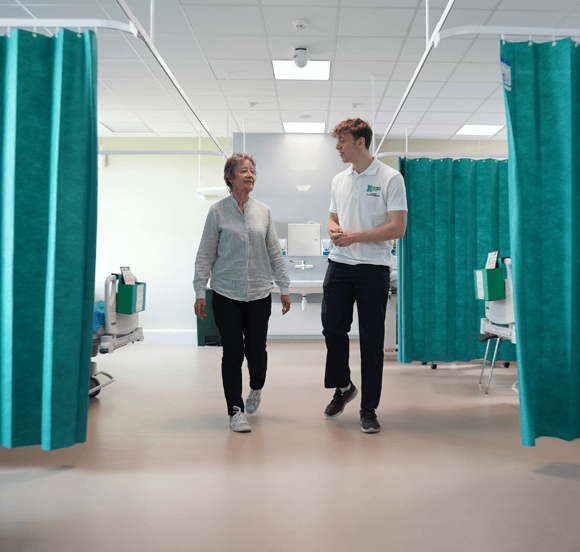
The Student Futures team is here to support you throughout your time at Roehampton and beyond.
They offer services tailored to your needs, helping you take confident steps towards your future.
You’ll have access to a wide range of career workshops and events, where you can engage with employers and develop the skills you need to succeed in the workplace.
These opportunities will help you build your CV, prepare for interviews, and connect with successful Roehampton graduates who are thriving in their careers. You’ll also be able to engage with our partners across London and beyond.
Wherever you want to go in the future, you'll be preparing for the world of work from your very first day.

Gain real-world skills through placements
Put your learning into practice through a series of supervised clinical placements that form an essential part of your degree.You’ll gain hands-on experience across a range of settings, including hospitals, community services, private practice, and specialist centres.
These placements will expose you to diverse patient groups and healthcare environments, from acute care to long-term rehabilitation. We also incorporate innovative placements across all pillars of practice; clinical, education, leadership and research.
Each placement is designed to help you apply your academic learning to real clinical scenarios, developing your confidence, clinical reasoning, and communication skills. These experiences ensure you graduate as a confident, capable, and compassionate physiotherapy professional, ready to deliver safe, effective, and evidence-based care.
Learning & assessment
How you'll learn
You’ll develop a practical understanding of how physiotherapy principles are applied to real-world health challenges, helping people restore movement, manage pain, and improve quality of life.
Our team of academic experts and practising clinicians will support your development through a dynamic blend of learning activities, including:
- Interactive lectures
- Seminars
- Practical workshops and simulation-based sessions
- Independent study
- Online learning and digital resources
- Practice placements across a variety of specialities and settings
Many elements of the programme are delivered through small group seminars and workshops, giving you regular opportunities to interact directly with lecturers and peers. This inclusive, hands-on approach encourages active participation through discussions, groupwork, case studies, and reflective practice.
You’ll complete supervised placements across a range of specialities and settings, gaining practical experience that complements your academic learning and prepares you to become a confident, skilled, and compassionate physiotherapy professional.
How you’ll be assessed
You’ll be assessed through a variety of authentic and practical methods designed to reflect real-world physiotherapy practice. These include:
- Practical assessments
- Blogs
- Infographics
- Case-based assessments
- Poster presentations
- Simulated job interviews
- Written reflections and blogs
- In-class tests
This range of assessment types will help you develop and demonstrate your clinical reasoning, communication, and professional skills, ensuring you are well-prepared for practice in diverse healthcare settings.
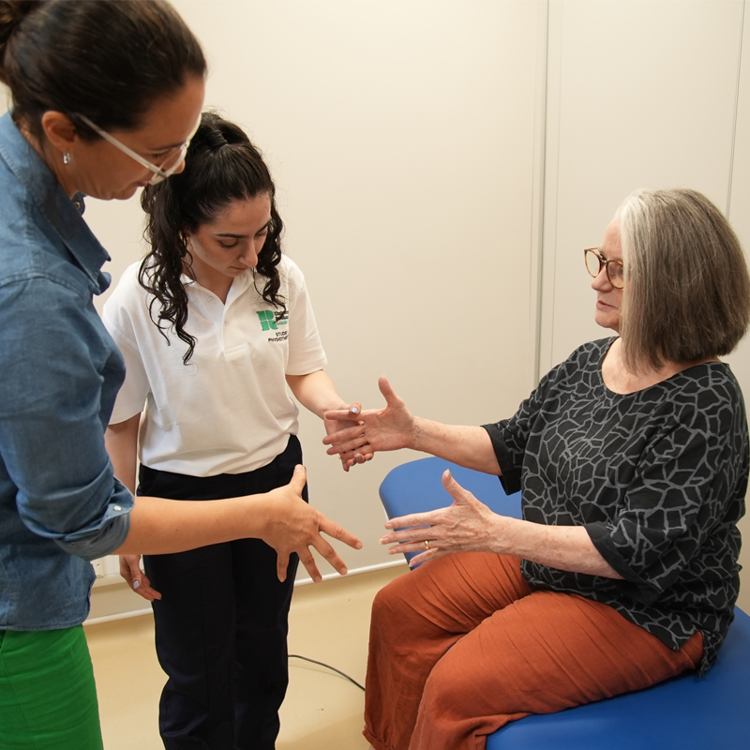

Hands-on learning in world-class facilities
Physiotherapy students at the University of Roehampton benefit from the Mary Seacole Health Innovation Centre, located on Digby Stuart College and the Clinical Simulation Centre located on Froebel campus.
These modern, multi-disciplinary centres support learning by providing simulated settings that mirror clinical spaces and giving students access to the latest technology and specialist physiotherapy equipment.
Everything here is designed to bring practical learning, teaching, and assessment to life, preparing students for a dynamic and rewarding career in physiotherapy.
Open days
Get a real taste of our campus, community and what it’s like to study at Roehampton
Applying
Full-time UK undergraduate students apply through UCAS.
Entry tariff
120–136 UCAS points (or equivalent)
Looking to work out your UCAS points or find out about our entry requirements? Find out more.
When we consider applications to study with us, we form a complete view of your achievements to date, and future potential, and can offer flexibility in entry requirements. Find out more about our Contextual Offer scheme.
Specific entry requirements
Entry subject should include a Science or Life Science subject e.g. psychology, physical education.
All students will complete a values-based interview. Evidence of interest and work experience in a relevant field.
Satisfactory enhanced DBS check (adults and children).
If English is not your first language, you will be required to meet the HCPC requirements (Standards of Proficiency for Physiotherapists, 2023): that students are able to communicate in English to level 7 of the International English Language Testing System, with no element below 6.5.
Students must undergo health screening to assess fitness to begin the course. Students must also complete an approved programme of immunisation, as recommended by the Department of Health.
Students must declare any criminal convictions, cautions, and bindings over when requested during the application and interview process.
.
General entry requirements
International undergraduate students apply through our direct application system.
Entry tariff
120–136 UCAS points (or equivalent)
Looking to work out your UCAS points or find out about our entry requirements? Find out more.
When we consider applications to study with us, we form a complete view of your achievements to date, and future potential, and can offer flexibility in entry requirements. Find out more about our Contextual Offer scheme.
Specific entry requirements
Entry subject should include a Science or Life Science subject e.g. psychology, physical education.
All students will complete a values-based interview. Evidence of interest and work experience in a relevant field.
Satisfactory enhanced DBS check (adults and children).
If English is not your first language, you will be required to meet the HCPC requirements (Standards of Proficiency for Physiotherapists, 2023): that students are able to communicate in English to level 7 of the International English Language Testing System, with no element below 6.5.
Students must undergo health screening to assess fitness to begin the course. Students must also complete an approved programme of immunisation, as recommended by the Department of Health.
Students must declare any criminal convictions, cautions, and bindings over when requested during the application and interview process.
General entry requirements
Fees and funding
UK students
Tuition fees
| Entry date | Undergraduate Year 1 |
|---|---|
| September 2026 | £9,790 |
Prices shown are for the first year of your degree.
Funding your studies
We also provide other ways to support the cost of living, including on-campus car parking, hardship support and some of the most affordable student accommodation and catering in London.
International students
Tuition fees
| Entry date | Undergraduate Year 1 |
|---|---|
| September 2026 | £20,280 |
Prices shown are for the first year of your degree.
Funding your studies
We also provide other ways to support the cost of living, including on-campus car parking, hardship support and some of the most affordable student accommodation and catering in London.


